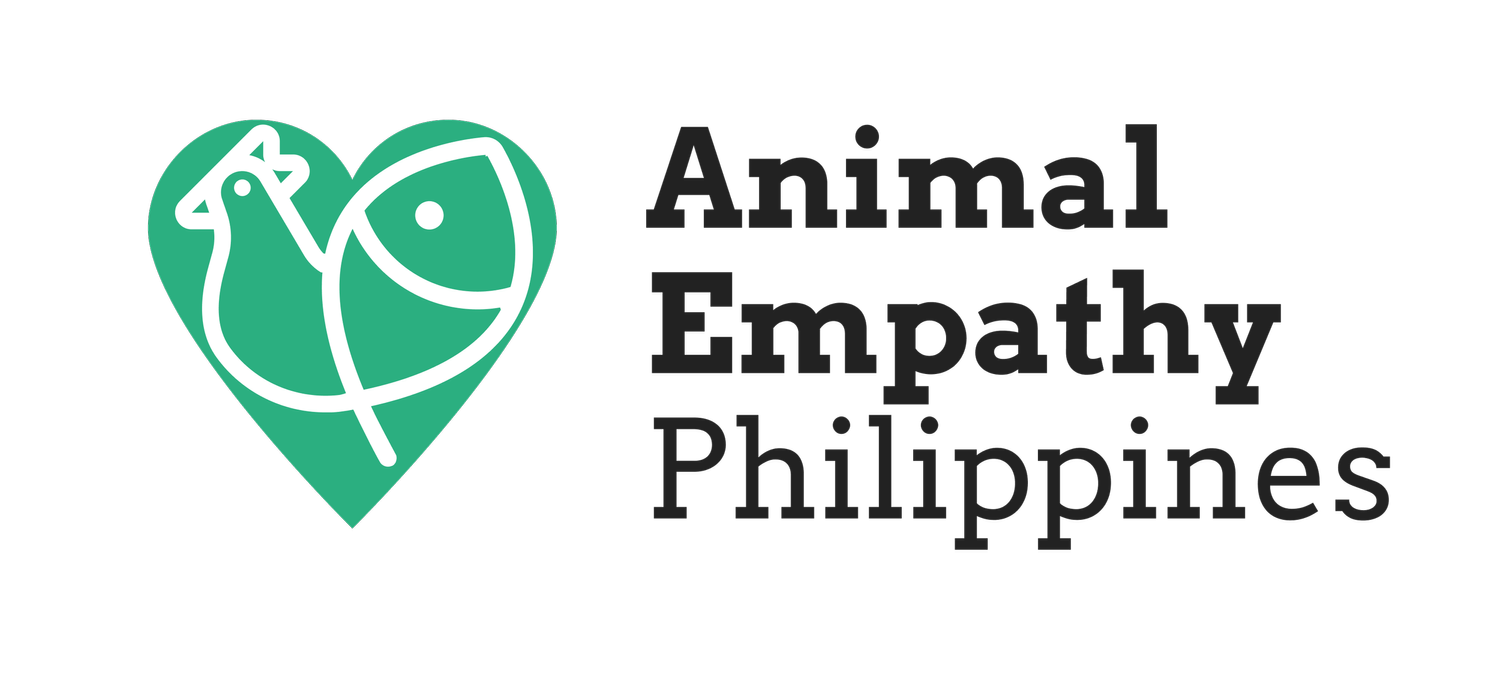Young Filipina Advocates to Look Out For
My name is Stef dela Cruz. I’m a retired doctor, editor-in-chief of a magazine about animals, and Animal Alliance Asia’s Philippine Coordinator.
Seven years ago, I was admitted to the hospital for an extremely painful condition that I’ve had since I was young. My intestines stopped working because of the illness and started ballooning, almost ready to burst. I thought I would die. In fact, part of me wanted to, because I didn’t think the intolerable pain would ever go away.
It took more than a week for me to finally become well enough to be discharged.
I was still in pain for weeks after leaving the hospital. Recovery was slow, but the prolonged agony made me realize that suffering of that severity wasn’t something I wanted others to ever experience.
I was aware that what I had was a second chance in life. I then started growing different plants in my garden, just to reorient myself to life once again. The more my garden flourished, the more I had “visitors”: bees, fireflies, and even a hummingbird! It then started to dawn on me that even the insect visitors in my balcony garden — deemed as pests by many — were deserving of life, just like me. They just wanted to survive, just like I did.
I realized that I liked the idea of respecting life instead of taking it. As much as I could, I shared my edible garden with different creatures, even if it meant that many of my plants would not have perfect flowers and leaves.
I also started making my own oat milk and enjoying food that didn’t come from animals. And by the time some of my friends told me about veganism, I didn’t need convincing: I already knew that going vegan was what I had always wanted to do even though I didn’t know it before then.
It took less than a month after becoming a vegan for me to become an active animal justice advocate.
Why do you think it’s important to advocate for farmed animals?
There are many reasons! The first that comes to mind is that unlike other justice issues, animal justice is not as accepted by society. When we talk about sparing the life of a pig, someone on social media will probably say, “Mmm, bacon!” and not feel any remorse.
Animals are among the most silenced victims of oppression. In fact, we often erroneously refer to them as “voiceless” despite the fact that they do have a voice. For instance, we will definitely hear chickens screaming at the top of their lungs when they’re being slaughtered!
And just because they do not speak any of our human languages, we think they can’t speak. They do; we just need to listen a bit more intently. This chronic silencing of animals, even by many of us who care about them, makes it all the more important for us to advocate for them.
The women reading this right now can relate: We have a voice, but many of us are not being heard.
Other reasons include the undeniable role of animal agriculture in driving climate change, the many harms of animal industries to the environment, the avoidable use of scarce resources for meat and dairy instead of crop agriculture, and the importance of acknowledging our non-supremacy over fellow sentients. There are many others; I’m sure your readers already know that so many issues we have as a society are actually connected to each other!
What farmed animal advocacy or plant-based initiatives are you currently doing or planning to do?
As Philippine Coordinator of Animal Alliance Asia, I helped design a nationwide advocate development program called Kain at Hain (Eat and Serve), where we build the skills of small vegan food businesses, make plant-based food more accessible to employees, and support crop farmers.
This fellowship program gives a stipend worth Php 10,000 to each chosen advocate. The advocates will be coming from different regions, and they will be partnering with different turo-turos (eateries) in formulating plant-based offerings, and with farmers from their respective regions.
With this program, we hope to normalize the idea that animals don’t need to become ingredients for us to enjoy affordable, accessible, nourishing food!
We are still accepting applicants until March 31. Anyone who has a vegan food business outside Metro Manila can apply here.
If you could share with us, like one story in your farmed animal advocacy journey that has touched you so well and you still remember, please share here. Feel free to add links, photos, a video, etc.
I believe my brain has effectively blocked so many sad memories of farmed animals! But one that gave me so much comfort was the story of Lux and Honey (and their friend Camina who already passed away).
They are rescued cows who finally live in a sanctuary, and I made a vegan gouache painting of them, just to remind myself and others that this is the kind of life any other farmed animal deserves.
Watch this short video of how I made the vegan gouache painting of Honey grooming Lux!
What is your message to other farmed animal advocates, especially the women and young girls?
We are all too familiar with being mistreated and exploited, simply because we are women. As we realize our own power and learn to take up space, let’s think of others whose lives are full of misery simply because they are born the way they are, to no fault of their own. Of course, that includes non-human animals.
And if you want to deepen your feminist values, try looking into how female cows are exploited in the dairy industry or how female chickens suffer in the egg industry. Their truths are horrific, but I am sure that their stories about how they’re exploited for their reproductive systems — stories often ignored but are quite relatable to anyone who identifies as female — will find a place in your heart.
Lastly, let’s connect on social media! I’m on Instagram and Facebook. Let’s help amplify the voices of both non-human animals and women on our platforms!
Stef



